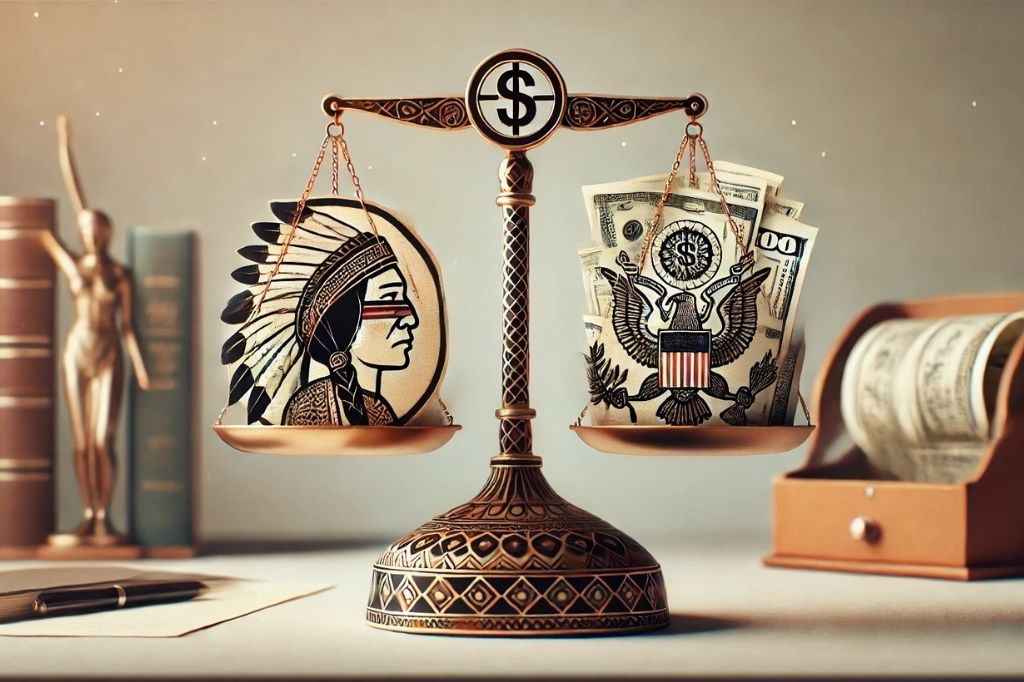It’s a question that folks might have asked at some point, especially if they’ve ever come across tribal lending or heard stories about these unique loan types. The big question is, can tribal loans actually be enforced? You know, with so many people considering tribal loans nowadays, it’s really key to know what you’re getting into and how enforceable these loans are if push comes to shove.
Let’s dive in and see what the deal really is here, from why enforcement is so tricky to what the laws actually mean for you.
What’s Really Different Here?
So, first things first. Tribal loans are offered by lenders affiliated with Native American tribes, which makes them a little different from your typical bank loan. See, tribes possess what is known as “soveregn status.” This essentially implies they have their own rules and processes, just as every state has its own laws but on a much more general basis. This means that tribal lenders, particularly with regard to interest rates, are not necessarily regulated by state rules applicable to other types of loans.
This sovereignty lets tribal bankers sometimes provide loans with conditions or rates not possible for standard state-regulated lenders. Therefore, it is not surprising that many who maybe lack the highest credit ratings or need cash quickly now turn to these loans as their first choice. But here’s where things get a little complicated – the laws that protect you with regular loans might not apply with tribal loans. So if you take out a loan from one of these lenders, it’s mostly the tribe’s rules that’ll dictate what happens if you can’t pay up on time, not necessarily your state’s. It’s a unique setup that has pros and cons, which we’ll get into more.
Tribal Sovereignty and Loan Enforcement: How Much Does It Matter?
One of the biggest sticking points with tribal loans is sovereignty. Because tribes have this special status as sovereign entities, they can run their lending practices without always having to follow state rules. For instance, if you’re in a state with tight restrictions on payday loans, a tribal lender might not have to follow those same rules. This freedom gives tribal lenders a certain edge in the lending market, but it can make things a bit hazy when it comes to enforcing these loans.
If a borrower defaults, meaning they can’t make their payments, the lender can try to take action, but enforcing that in a state court can be tricky due to the whole sovereignty thing. Some courts might say, “Hey, this loan doesn’t follow our state’s laws,” and refuse to enforce it. That said, tribal lenders do have other methods, like reporting to credit bureaus or working with collection agencies to recover the money. But the sovereignty aspect means it’s not as simple as a regular loan, and borrowers often find themselves in this murky area where they’re not quite sure what might happen if they can’t pay.

Can Tribal Loan Contracts Really Hold Up in Court?
Now, let’s say you signed up for a tribal loan and things went south. What’s next? Are they going to come knocking? Well, the enforceability of these contracts really depends on a few things. First off, most tribal loan contracts have something called an arbitration clause. This basically means that if there’s a dispute, it’ll be handled under the tribe’s legal system, not in your local state court. In a way, it’s like you’re agreeing to go by their rules when you sign that contract.
But can they enforce that contract if you don’t pay? Sometimes yes, sometimes no. In state courts, enforcement can be tough. Some state judges will say, “Nah, we’re not enforcing this because it doesn’t line up with our state’s lending laws.” Yet, that doesn’t mean you’re totally off the hook.
Are There Consumer Protections with Tribal Loans?
When we talk about loans, especially high-interest ones, consumer protection is a huge deal. For most loans, states have laws in place to protect borrowers from what’s known as “predatory lending” – basically, unfair and overly expensive loan practices. But because tribal lenders operate under their own laws, a lot of these consumer protections don’t apply in the same way.
However, federal rules do still come into play to some extent, especially if there’s something really wrong like fraudulent practices. Agencies like the Federal Trade Commission (FTC) have been known to step in on cases where tribal lenders might be overstepping bounds in a big way. But for the day-to-day issues like interest rates and fees, there’s just not the same level of protection as with state-regulated loans.
So, if you’re considering a tribal loan, it’s smart to read every single line of that contract; especially the fine print. Know what kind of interest rates you’re agreeing to, what happens if you’re late, and whether any fees can pop up. Tribal loans come with their own risks because they fall into this legal gray zone, and the best thing you can do as a borrower is go in with your eyes wide open.
Exploring Alternatives to Tribal Loans
With all the ins and outs of tribal loans, some people might wonder, “Are there better options out there?” The answer is yes, there usually are some alternatives to consider. Credit unions, for example, often provide personal loans at lower rates and with friendlier repayment terms. Even online lenders might be worth looking into, as many now work with folks who have lower credit scores but might offer a bit more security than a tribal loan.
Though it’s not always feasible for everyone, contacting relatives or friends might possibly be a choice if the loan amount is within reasonable bounds. The main line here is that, because acquiring debt is a significant commitment, it is advisable to weigh a few many possibilities before writing a signature line. There might be a safer choice out there that won’t put you in the tricky position of dealing with enforceability issues later on.
Editor’s note…
Alright, so where does that leave us? The question of whether tribal loans can be enforced doesn’t have a simple yes or no answer. The whole thing is wrapped up in legal nuances, tribal sovereignty, and a kind of “gray area” where enforcement can be hit or miss. Tribal lenders have ways to collect debts, but getting these loans enforced in a traditional court can be tough.
For borrowers, understanding what you’re agreeing to is essential. Tribal loans can offer fast cash, but they also come with their own unique set of risks. If you’re thinking about a tribal loan, do your homework, check the terms, and know that the enforcement aspect might not work like it would with a traditional loan.
In the end, being informed is your best defense, especially in a financial world that’s anything but simple!

